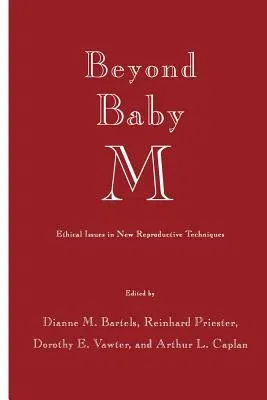Dianne M Bartels
(Author)Beyond Baby M: Ethical Issues in New Reproductive Techniques (Softcover Reprint of the Original 1st 1990)Paperback - Softcover Reprint of the Original 1st 1990, 20 May 2013

Qty
1
Turbo
Ships in 2 - 3 days
In Stock
Free Delivery
Cash on Delivery
15 Days
Free Returns
Secure Checkout
Part of Series
Contemporary Issues in Biomedicine, Ethics, and Society
Print Length
288 pages
Language
English
Publisher
Humana
Date Published
20 May 2013
ISBN-10
1461288533
ISBN-13
9781461288534
Description
Product Details
Book Edition:
Softcover Reprint of the Original 1st 1990
Book Format:
Paperback
Country of Origin:
NL
Date Published:
20 May 2013
Dimensions:
23.39 x
15.6 x
1.6 cm
ISBN-10:
1461288533
ISBN-13:
9781461288534
Language:
English
Location:
Totowa, NJ
Pages:
288
Publisher:
Weight:
421.84 gm

